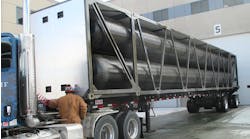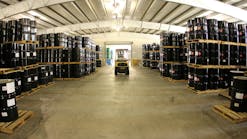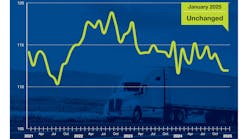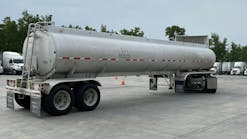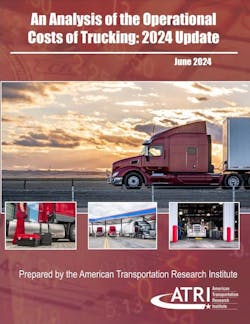Excluding surcharge-protected fuel costs, marginal trucking costs rose 6.6% to $1.716 per mile in 2023, according to the American Transportation Research Institute’s 2024 analysis of the Operational Costs of Trucking.
The annual report analyzes line-item costs, operating efficiencies, and revenue benchmarks by fleet sector and size, providing crucial benchmarking for motor carriers and a comprehensive overview of the financial state of trucking for decisionmakers in both industry and government.
The overall marginal costs of operating a truck hit $2.270 per mile in 2023, a 0.8% increase over the previous year, ATRI reported.
“The current economic environment makes cost management essential to successful operations,” Gregg Troian, PGT Trucking president, said in a news release.
“ATRI’s Operational Costs report provides the targeted costs and operational benchmarks necessary to identify opportunities for reducing expenses and how to best act on those opportunities in our fleet.”
Overall, 2023 expenses rose moderately across most categories, with average costs across line-items increasing at less than half the rates experienced during 2021 and 2022. Truck and trailer payments grew by 8.8% to $0.360 per mile, driver wages grew by 7.6% to $0.779 per mile, and repair and maintenance costs grew by 3.1% to $0.202 per mile. The exception to this trend was truck insurance premiums, which grew by 12.5% to $0.099 per mile after two years of negligible change.
The soft 2023 freight market posed many challenges for operational efficiency, as tracked in the report. Deadhead mileage, a critical financial drain, rose to an average of 16.3% for all non-tank operations, and driver turnover rose by five percentage points in the truckload sector.
These pressures combined with low freight rates strained profitability across the industry, ATRI added. Average operating margins were 6% or lower in all fleet sizes and sectors other than LTL. The truckload and specialized sectors experienced drops in per-mile or per-truck revenue, and most saw “other costs”—expenses outside of the core marginal line-items—increase as a share of total revenue.
